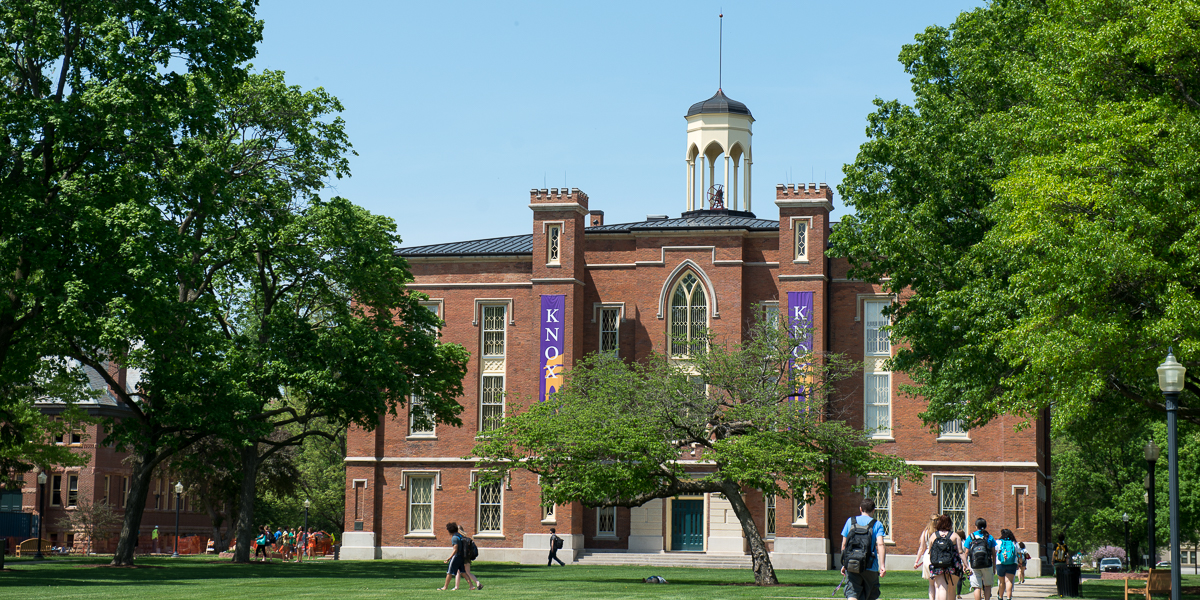


Explore other offices & services
Career Success, Bastian Family Center for
College Engagement, Office of Advancement
Community Service, Mark & Jeannette Kleine Center for
Disability Support Services, Office of
Global Studies, Eleanor Stellyes Center for
Government & Community Relations, Office of
Information Technology Services
Institutional Research, Office of
International Student Services, Office of
Knox Advisory Committee on Socially Responsible Investing
Research & Advanced Study, Gerald & Carol Vovis Center for
Student Development, Division of
Student Financial Services, Office of

Seven Key Points about Interviewing:
- Interviews are tests of communication - master communication skills!
- Always look your best. (Interviewers may assume this is the best you'll ever look!)
- Relax, be polite, and smile.
- Think of the qualities you have - do they fit the employer?
- Research the organization.
- Be honest.
- You have to sell yourself; no one else will.
Research the Organization and Know:
- The function and size of the organization
- The duties and responsibilities of the position for which you are applying
- The products or services provided by the organization
- Typical entry-level positions
- Typical salary ranges for your desired position
- Geographical locations
- The latest news on growth or strategic direction
- Stability of the financial condition or backing
- Career advancement possibilities
- Opportunities for training or further education
- Skills required in the position for which you are applying
Analyze Your Own Background:
- What skills do you have that relate to your job objective?
- Identify examples from your past experience where you demonstrated those skills.
- Can you tell a story about your use of particular skills or knowledge?
- Concentrate on developing complete answers and remember that a good story has a beginning, middle and an end.
- Wherever possible, quantify your results. Numbers illustrate your level of responsibility.
- Be prepared to provide examples of when results did not turn out as you planned. What did you do then?
- Before starting the interview process, identify 2-3 of your top selling points and determine how you will convey these points during the interview.
Gain Strong and Polished Interviewing Skills:
- Interviews demand communication skills.
- Practice! (Sign up for a "mock interview" in the Bastian Family Center for Career Success)
- Include experience and education in your answers.
- Prepare questions you will ask the interviewer
Attend to Details:
- Learn correct name, manner of address (i.e. Sir, Madam, Ms., Mrs., etc.) of interviewer.
- Plan transportation to arrive EARLY.
- Even though many of today's work environments are "business-casual," you should still dress formally for the interview.
First Few Minutes
- Create a strong first impression, be polite and assured.
- Display positive body language
- Listen to all that the interviewer is, and is not saying.
- Relax, smile; enjoy the opportunity to meet and talk with someone in your field of interest.
Main Portion of the Interview
- Listen to interviewer's description of position - match your presentation of skills to interviewer's needs.
- Prepare to state carefully throughout the interview your career goals and plans.
- Relate answers to information you researched on the organization
- Avoid questions on salary and benefits - discuss these issues after you are offered the position.
- Contribute information that is important about your experiences.
- Show enthusiasm and interest for the position.
Closing
- Listen for an indication that the interview is over.
- Ask when the decision is to be made.
- Thank the interviewer for the courtesy and time.
Questions Appropriate for You to Ask
- Tell me about your opportunities for additional training.
- Are new services or programs planned?
- How are performance reviews given?
- What is the career path for this position?
- What is a typical day like for this job?
- With promotion, are transfer (overseas) opportunities available?
Follow-Up to the Interview
- Write a thank you to all those with whom you interviewed, restate your interest in the position and your appreciation for them taking the time to meet with you.
- Call the interviewer just before the decision time and ask if additional information is desired.
Think positively!
"Tell me about yourself."
Answer in about two minutes. Avoid details, don't ramble. Touch on four areas: (1)born/raised (2)education/activities (3)work experiences (4)career interests."Can you work under pressure?"
Don't just give a yes or no answer-elaborate. Explain why. Give explicit examples."What is your greatest strength?"
Isolate high points in your background. Always back your answer with an example."What is your greatest weakness?"
If there is a minor part of the job that you lack knowledge, but will gain that knowledge quickly, use that as an example. Put the weakness in the past (you had that weakness once, but you came up with a way or overcome or improve this deficit)."Why do you want to work here?"
This is a research question. A way to answer this is to reply with the company's attributes as you see them."What qualifications do you have that will make you successful?"
Academics will not do it all. You also have to add relevant experiences that illustrate your strong points as they apply to the company.
Big Interview - Big Interview allows students and alumni to conduct an online, interactive mock job interview based on their chosen industry. They can choose from easy to difficult levels of interview questions, record and re-record responses, and much more!
Mock Interviews - make an appointment on Handshake to come in for a practice interview to be confident in your skills.